In the past on this blog, we have discussed how creatives, especially writers, seem to be susceptible to mental illness and prone to suicide (not sure what I’m talking about? Read The Sylvia Plath Effect here). So, why has there been a surge of people believing that Hunter S. Thompson’s death was orchestrated by outside forces? Who did the king of Gonzo Journalism cross, and what did he know? Let’s explore. (TW: Suicide for this entire post.)
Who Was Hunter S. Thompson?
Hunter Stockton Thompson was born on July 18, 1937 in Louisville, KY. His family was middle class – his mother worked as a librarian and his father was a veteran and insurance adjuster. Thompson attended Louisville Male High School, though he did not graduate. Just prior to his final exams, Thompson was charged in relation to a robbery and spent a month in jail. After his release, he enlisted in the Air Force. During his enlistment, he attended classes at Florida State University. During this time Thompson fabricated a work history to land a job as a sports editor for The Commander Courier.
After being discharged from the USAF in 1957. After this, Thompson moved from writing job to writing job, oftentimes being fired for insubordination or angry outbursts. He traveled during this time and lived in many states. He would not settle down until he moved to San Francisco in the mid 1960s. He engrained himself in the drug and hippie counterculture that thrived there.
Thompson got his big break in the literary world in 1965, when he was hired to write a piece about the Hell’s Angels in 1965. The article caught fire and landed Thompson a book deal. To research for the book, Thompson immersed himself in the Hell’s Angels – he lived near them, he forged relationships with them, he partied with them. The members of the Angels had generally accepted Thompson into their ranks despite him being upfront about being a journalist. The relationship did begin to fade, however, after Thompson was jumped by some members for a comment he made.
The Hell’s Angels article and book gave rise to the genre of Gonzo Journalism, which is journalism where the writer inserts themselves into the narrative and is the main point of view. Thompson went on to run in (and lose) the race for sheriff of Aspen. He wrote several more articles in the Gonzo style, and then moved on to novels – his best known of which is Fear and Loathing in Las Vegas, which was adapted into a film starring Johnny Depp.

via Rolling Stone)
Thompson’s Death
The night of February 20, 2005 started off normal. Thompson was at his home in Woody Creek, CO. His son, daughter-in-law, and grandson were in the house. Thompson’s wife, Anita, was out of the house after an argument with him. Thompson called Anita at around 5:40 PM and asked her to help write an article that was nearing its due date. Then, while still on the phone, Thompson placed the barrel of a .45-caliber pistol inside of his mouth and cocked it. Anita, believing the sound of the hammer to be Thompson typing, hung up before he pulled the trigger and completed suicide.
The sound of the gunshot was mistaken for an item falling at first. Thompson’s son Juan eventually went downstairs, only to find his father dead at the kitchen table. He notified police and then fired a shotgun three times into the air outside the home. A strange, violent expression of grief. The police investigating the scene found a piece of paper still in Thompson’s typewriter reading “Feb. 22 ‘05” and the word “counselor.” It is unknown what the purpose of the word, in particular, is. There were no other goodbye notes or letters found.

via the Aspen Times)
The Conspiracy
The conspiracies revolving around Thompson’s death began nearly as soon as his death was announced. The conspiracies seem to spawn from one of two sources. First, Thompson himself had been very outspoken about his opinions regarding the governmental and political events – in an interview with KDNK Radio, he even hinted that he may be beheaded or otherwise killed for speaking out. The second source of the conspiracy came from a police officer who reported to the scene. The officer stated that there was no spent cartridge within the gun, which led to speculation that Thompson was compelled to shoot himself with threats of violence. Speculation with the Cartridge Conspiracy depends heavily on the idea that there was only one bullet in the gun to begin with.
The general gist of the conspiracy, regardless of its point of inception, is that Hunter S. Thompson was “suicided” for knowing too much or raising too much of a fuss. “Suiciding” is the act of either forcing someone to take their own life with some sort of threat, or staging a murder in such a way that it will be ruled a suicide. Speculation regarding what, exactly, Thompson knew runs rampant within conspiracy circles – but one theory gets mentioned more often than the rest. Thompson was an open critic of George W Bush and the Iraq War, and was not afraid to discuss how irrational he thought the war was. Some subsets of the internet believe that Thompson uncovered information regarding the United States Government’s involvement with the 9/11 attacks on the World Trade Center. The repercussions of such information being publicized could have been catastrophic – so he was killed before that could happen.
Author’s Thoughts
While I do generally believe that people with knowledge can be dangerous to those they hold information over, this does not seem to be a case of espionage or murder to me. Thompson’s own family has publicly stated that he struggled with his mental health – his son even went so far as to say he was a “basket case.” It is a matter of public record that Thompson struggled with drinking, drug abuse, and depression. He isolated himself often and told his friends and family that he particularly found the month of February to be difficult to get through. I think it’s very likely his mental health deteriorated and he found himself in a dark place he was unable to see a way out of. But does that mean his writing and the people he had information on had nothing to do with it? Not necessarily.
Paranoia is a tricky thing, especially when it is the result of an underlying mental illness. It, like so many other aspects of mental illness, turns your brain against you. It causes your inner monologue to spout lies and, because you’re so vulnerable, you take them as fact. Paranoid thoughts often revolve around one’s safety, security, or wellbeing. I don’t think we can rule out the idea that Thompson was experiencing some form of paranoia and anxiety as a result of his career. His style of journalism put him into each story, interacting with each subject. And those subjects had been dangerous at times. A spark of unease at knowing this could have turned into a wildfire in his mind.
All in all, I personally do not believe that Hunter S. Thompson died at the hands of someone else. I believe he completed suicide after decades of dealing with substance abuse and mental health issues. The weight of his knowledge could have contributed to his mental state deteriorating. Unfortunately, it is impossible to know what Thompson was thinking before he pulled that trigger, but I think it would be best – for his friends, family, and other loved ones – if the internet stopped speculating.
Sources
- https://www.seattletimes.com/nation-world/hunter-s-thompson-killed-himself-during-phone-call/#:~:text=Thompson%20died%20at%2067.,the%20house%20at%20the%20time.
- https://www.independent.co.uk/news/long_reads/hunter-s-thompson-death-suicide-kill-himself-how-die-gonzo-journalism-warren-hinckle-a8161841.html
- https://en.wikinews.org/wiki/Hunter_S._Thompson_obituary_spawns_%22murder%22_theory
- https://www.theguardian.com/books/2016/jan/12/juan-thompson-book-hunter-s-thompson-stories-i-tell-myself
- http://www.thompsonmurder.com/
- https://www.cbsnews.com/news/hunter-thompsons-chilling-death/
- https://www.vice.com/en/article/kwpmgx/ten-years-after-hunter-s-thompsons-death-the-debate-over-suicide-rages-on-220
- https://www.grunge.com/239210/the-tragic-death-of-hunter-s-thompson/
- https://www.nytimes.com/2005/02/22/books/hunter-s-thompson-outlaw-journalist-is-dead-at-67.html
- https://www.biography.com/writer/hunter-s-thompson
- https://www.openculture.com/2014/07/hunter-s-thompsons-conspiratorial-911-interview.html
- https://www.boulderweekly.com/entertainment/books/thompsons-last-stand/
- https://www.theatlantic.com/entertainment/archive/2011/07/the-hunter-s-thompson-you-dont-know/242198/
- https://www.spectacle.org/0305/clark.html
- https://www.newstatesman.com/culture/books/2018/05/journalism-s-lord-misrule-gonzo-philosophy-hunter-s-thompson
- https://www.latimes.com/archives/la-xpm-2005-feb-26-na-thompson26-story.html
- https://www.democracynow.org/2005/2/23/hunter_s_thompson_1937_2005_on

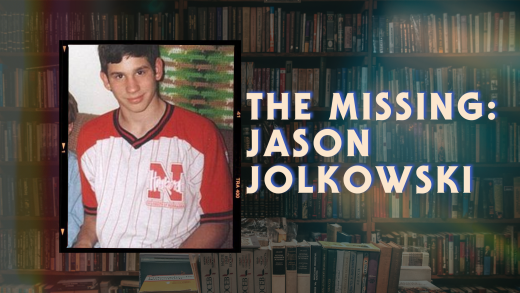
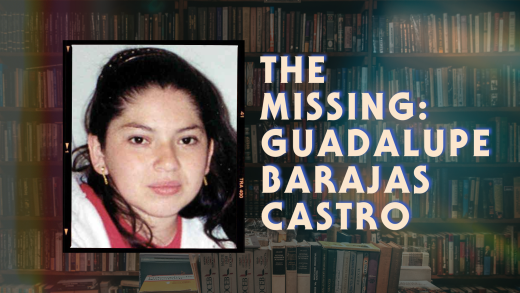
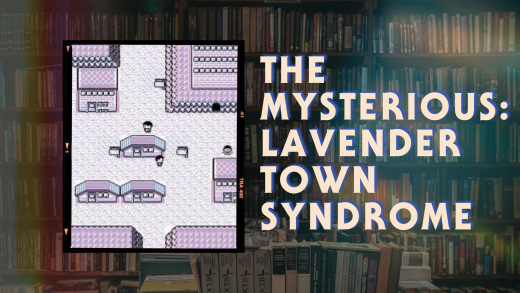

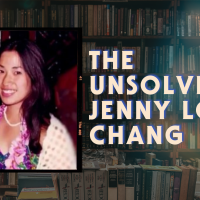
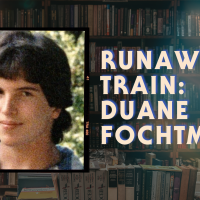
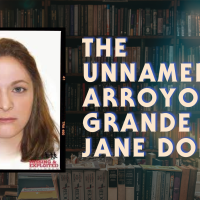
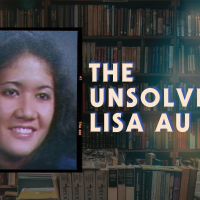
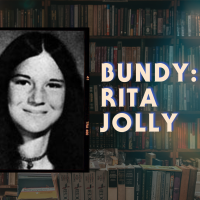
“There were no other goodbye notes or letters found.” -inaccurate, none of your resources state this.
There WAS a suicide note written by Thomson titled, “Football Season is Over” which is widely known to anyone who has read more than just Fear & Loathing.
https://www.rollingstone.com/culture/culture-news/football-season-is-over-hunter-s-thompson-1937-2005-171034/
Hi Jacob,
That sentence was to mean that there was no other note directly at the desk, on the computer, or in his typewriter, as in no note impulsively written in that moment (as suicide is most often an impulsive decision, made in a moment of pain). I should have made that more clear in the post.
You are correct that “football season is over” is widely considered to be his suicide note (for those that believe he took his own life) – the note was handwritten four(ish, hard to know) days before his death, and I have found no proof that he had the note close when he completed suicide.
Thanks.
I am related to the Thompson family and there is a very long history of substance abuse and mental illness. I’m the family genealogist and have documented four generations (and counting) of Bipolar Disorder. Hunter is, sadly, far from the first suicide. My mother’s brother, father and four uncles took their own lives. (The brother, after weeks of depression for which his family tried and failed to get him committed) also murdered his wife and mother-in-law before killing himself). Alcoholism is epidemic, as is domestic violence and child abuse. (I can personally testify to that).
Hunter had a lifelong issue with depression
Until society erases the stigma of mental illness , and government and insurance companies stop making health care affordable , such tragedies will continue to occur.
Joe – First, I am so sorry to hear of the incredible amount of losses you and your family have endured. I totally agree that the stigma around mental health and the fact that access to health care (and especially mental health care) is abysmal. It should be a universal right for everyone – and if it was, surely many people would get the help they need to cope with their mental illnesses and perhaps even save their lives.
I don’t particularly understand peoples’ urge to believe these conspiracy theories – maybe they don’t want to face the idea that sometimes people suffer from mental illness, and there isn’t some bad guy behind the curtain.